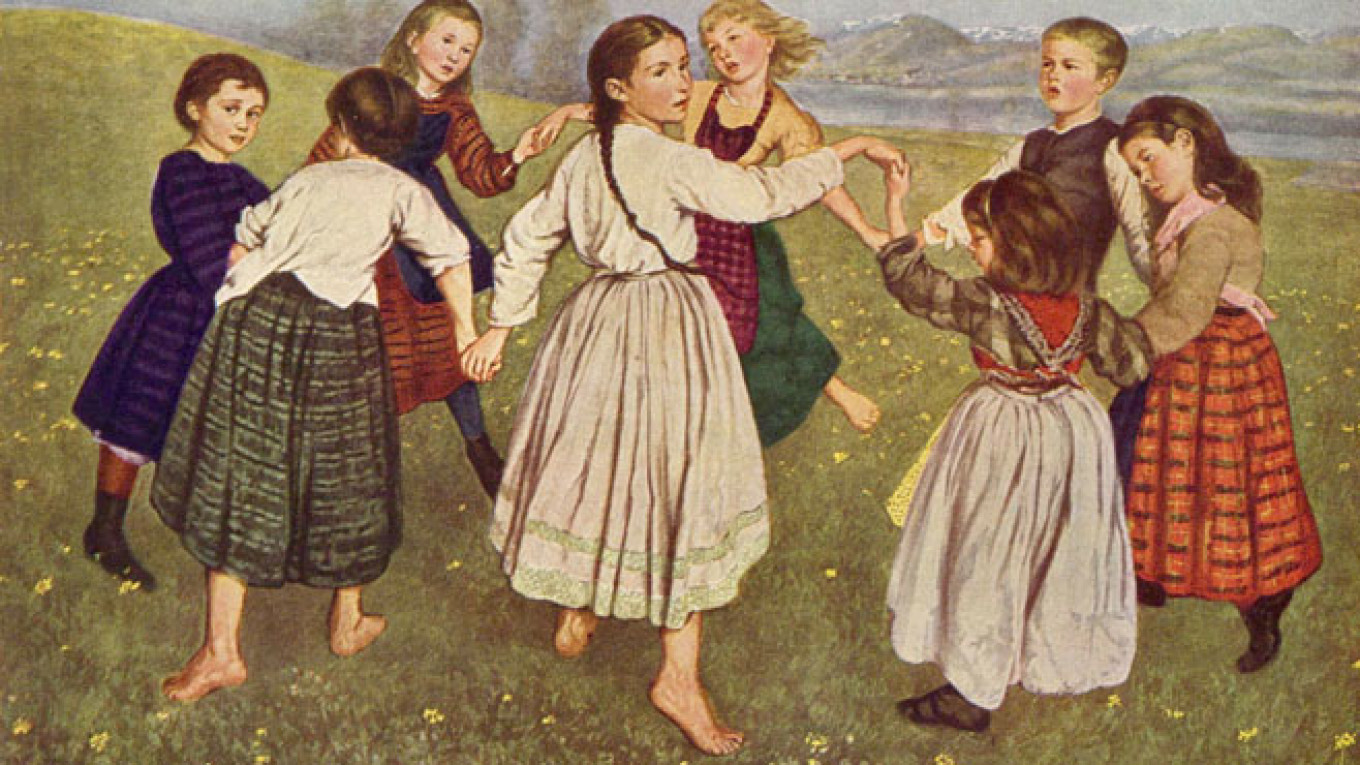Тве́ркинг: twerking
Forest fires are sweeping the countryside, the economy is plummeting, a war is being waged in eastern Ukraine, and what are we discussing on Internet? Тверкинг (twerking), specifically a video clip of a dance class where young girls in striped yellow and black costumes pretend to be bees and wiggle around Winnie the Pooh. Is it obscene or not? The country is deeply divided.
But first — is it тверкинг or тверк? Although Russian sometimes borrows English words ending in -ing — for example, паркинг (parking) and шоппинг (shopping) — most fulminators and defenders of the dance clip prefer to use тверк. Some make it твёрк/твёркинг, but this is clearly a passing fad propagated by English-speaking know-it-alls.
You can use the verb тверкать, as in this fascinating assertion: Парни тоже умеют тверкать. (Boys can twerk too.) Or you can use тверк in sentences as if it were a dance like вальс (waltz). Можно учиться танцевать тверк дома. (You can learn “to dance the twerk” at home.) Or you can refer to it as a dance craze: Они исполняют танец в стиле тверк. (They are dancing in a style called twerking.)
Russian journalists, bless their hearts, tried valiantly to describe тверк to their readers. One wrote: Полуприсев или стоя, исполнительница ритмично двигает бёдрами и ягодицами. (Half-squatting or standing, the dancer rhythmically moves her hips and buttocks.) If that sounds like a 1950s guide to marital relations, another definition was more to the point: Тверкать — художественно трясти задницей. (Twerking is the art of shaking your booty.)
After reviewing the clip, some Russian commentators with specialized knowledge of apiculture thought the girls were just acting their part as busy little bees. Пчёлки должны жалить Винни-Пуха. А жало у пчёлок в попке. И пчёлка когда жалит, этой самой попкой крутит будь здоров! (The bees have to sting Winnie the Pooh. The bee’s stinger is in its bottom. And when bees sting, they shake that bottom of theirs real good!) Another defender even looked up bee stinging behavior in a book: В учебнике зоологии написано, что они чем-то виляют. (In a zoology textbook it says that they shake something.)
But other people were outraged: Это зрелище в детском исполнении — пошлость неописуемая (This spectacle performed by children is vulgar beyond description.) Тверк головного мозга директора школы! (The school director’s brain is twerking!) And it appears that the local investigative committee is studying the tape, looking for evidence of “развратные действия” (actions to pervert).
Other folks just did not take this issue as seriously as they should have. One wrote: Тут же православный канкан, а не америкосский тверк! (This is the Orthodox Christian cancan, not some Yankee twerking!)
And then there was a run on twerking, or rather tweaking, an old Soviet expression. Сегодня он играет джаз, а завтра Родину продаст (Today he plays jazz, and tomorrow he’ll sell out his Homeland) became: Сегодня ты танцуешь тверк — а завтра Родину отверг. (Today you dance the twerk, and tomorrow you’ll reject your homeland.) Or: Сегодня попой крутишь твёрки, а завтра — эмигрант в Нью-Йорке. (Today you shake your butt and twerk, tomorrow you’ll be an emigrant in New York.) And of course — it’s a Western plot: Сегодня ты танцуешь тверк, а завтра — президента сверг! (Today you twerk. Tomorrow you overthrow the president!)
All I can say is: If they don’t like this kind of dance, then how about импортозамещение танцев (dance import substitution)?
Michele A. Berdy, a Moscow-based translator and interpreter, is author of “The Russian Word’s Worth” (Glas), a collection of her columns.
A Message from The Moscow Times:
Dear readers,
We are facing unprecedented challenges. Russia's Prosecutor General's Office has designated The Moscow Times as an "undesirable" organization, criminalizing our work and putting our staff at risk of prosecution. This follows our earlier unjust labeling as a "foreign agent."
These actions are direct attempts to silence independent journalism in Russia. The authorities claim our work "discredits the decisions of the Russian leadership." We see things differently: we strive to provide accurate, unbiased reporting on Russia.
We, the journalists of The Moscow Times, refuse to be silenced. But to continue our work, we need your help.
Your support, no matter how small, makes a world of difference. If you can, please support us monthly starting from just $2. It's quick to set up, and every contribution makes a significant impact.
By supporting The Moscow Times, you're defending open, independent journalism in the face of repression. Thank you for standing with us.
Remind me later.








